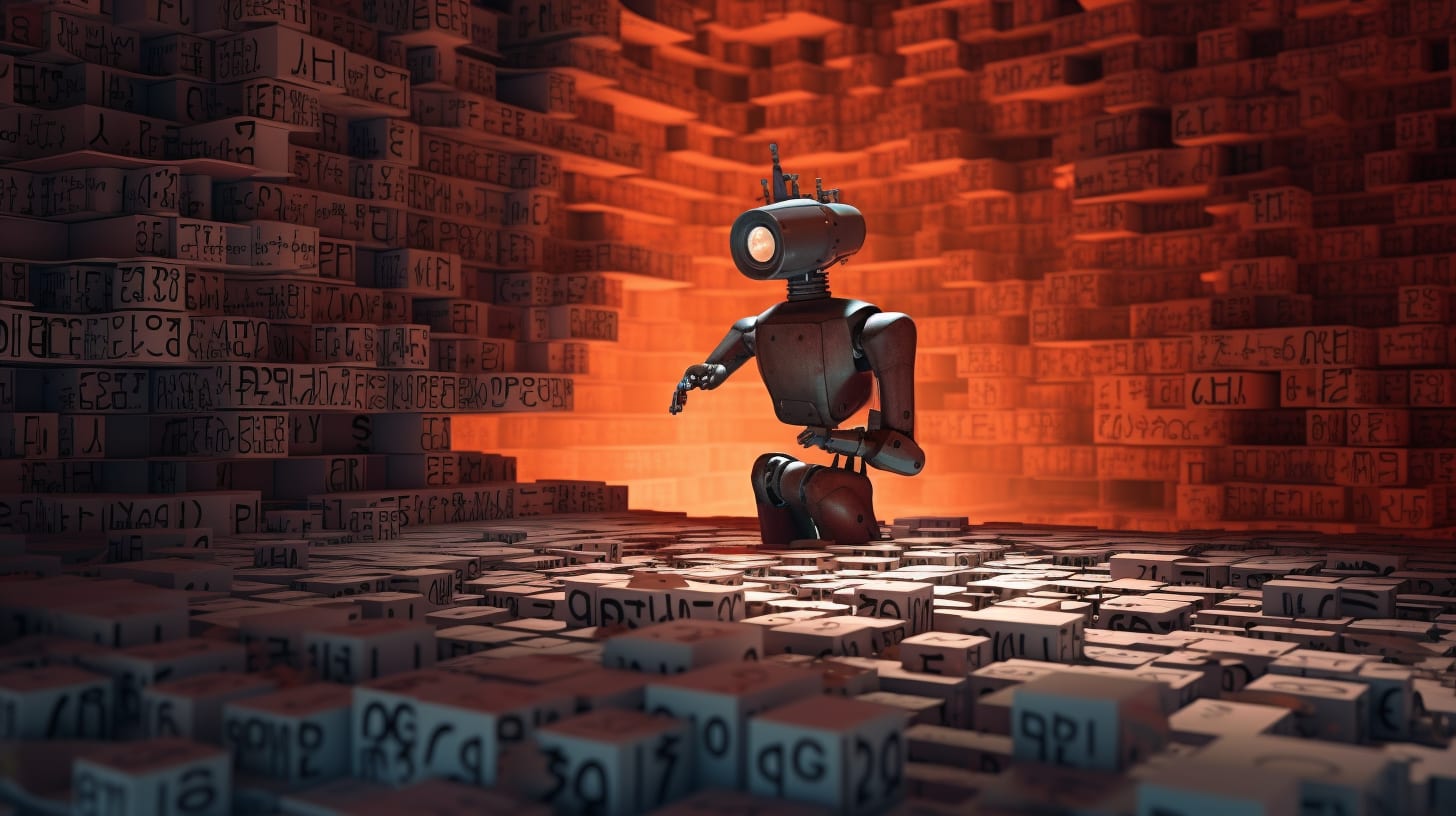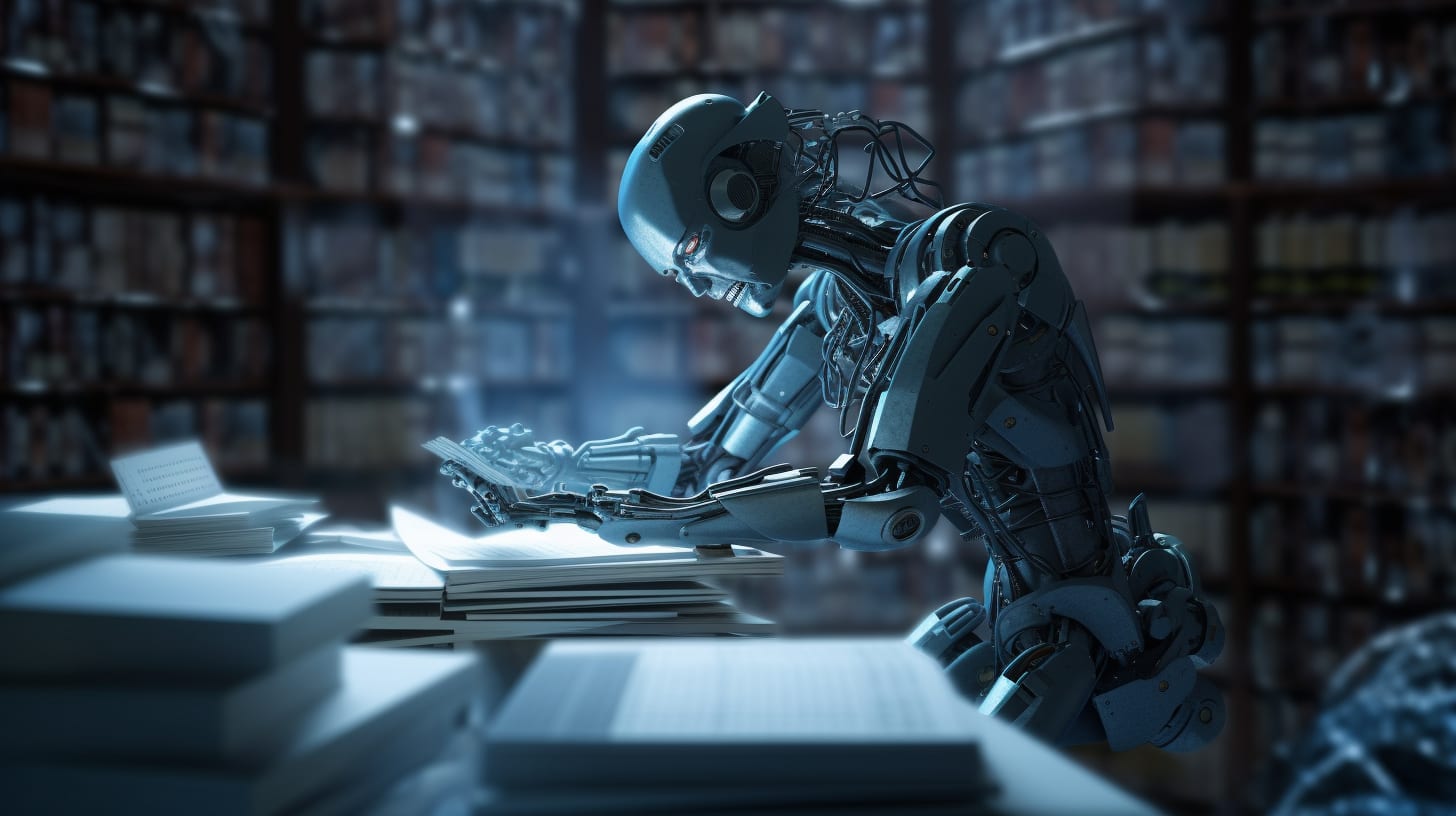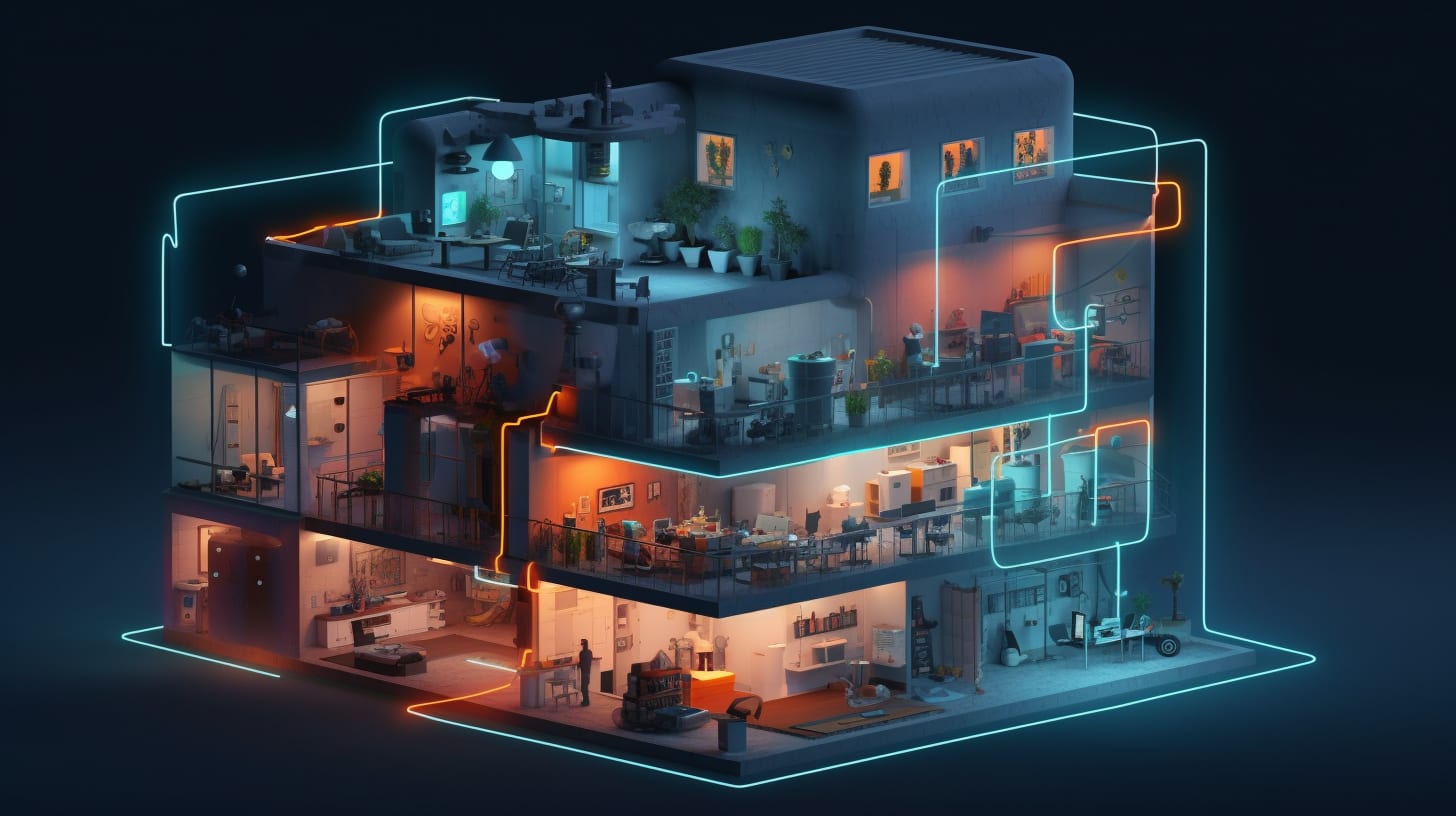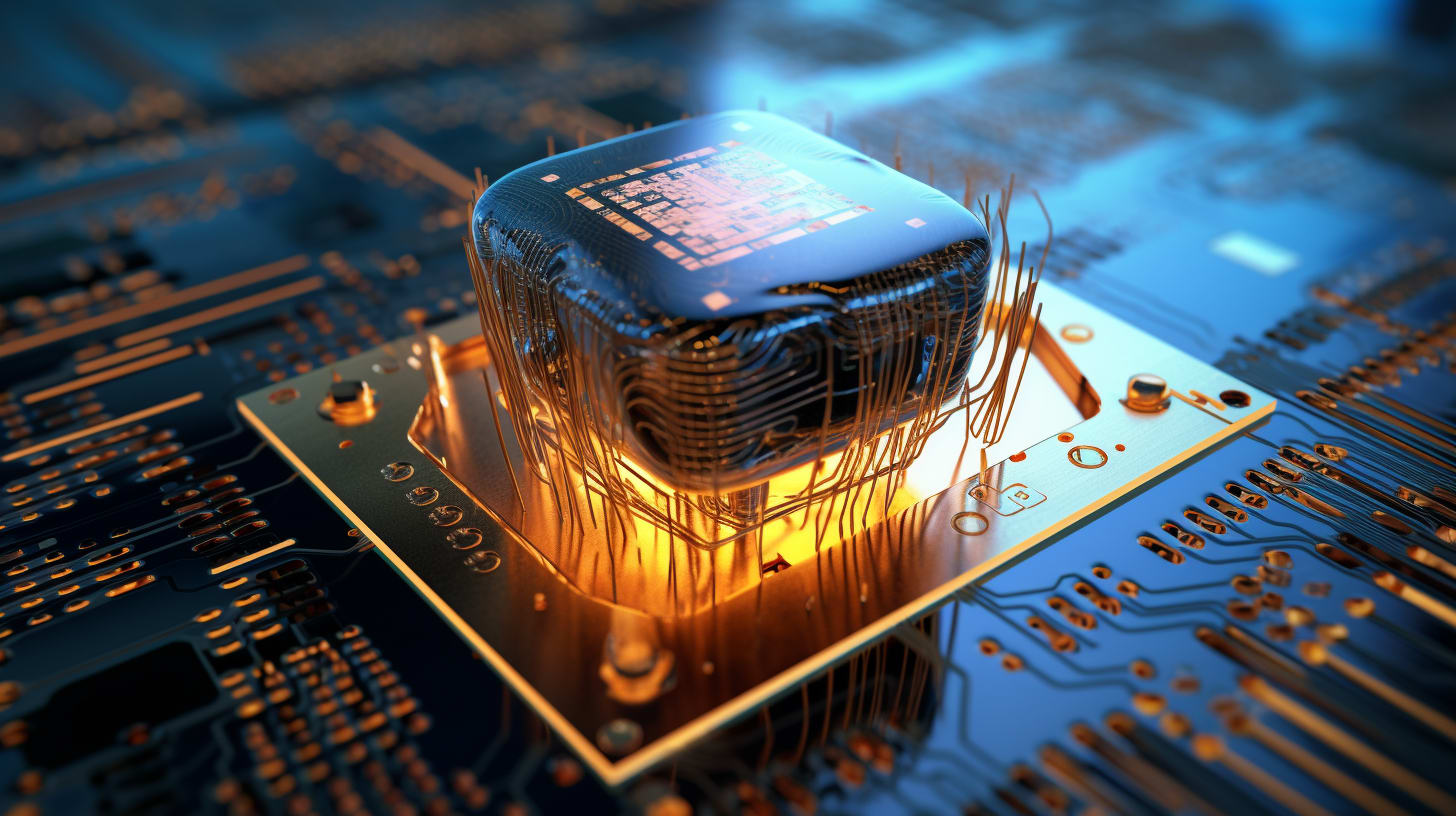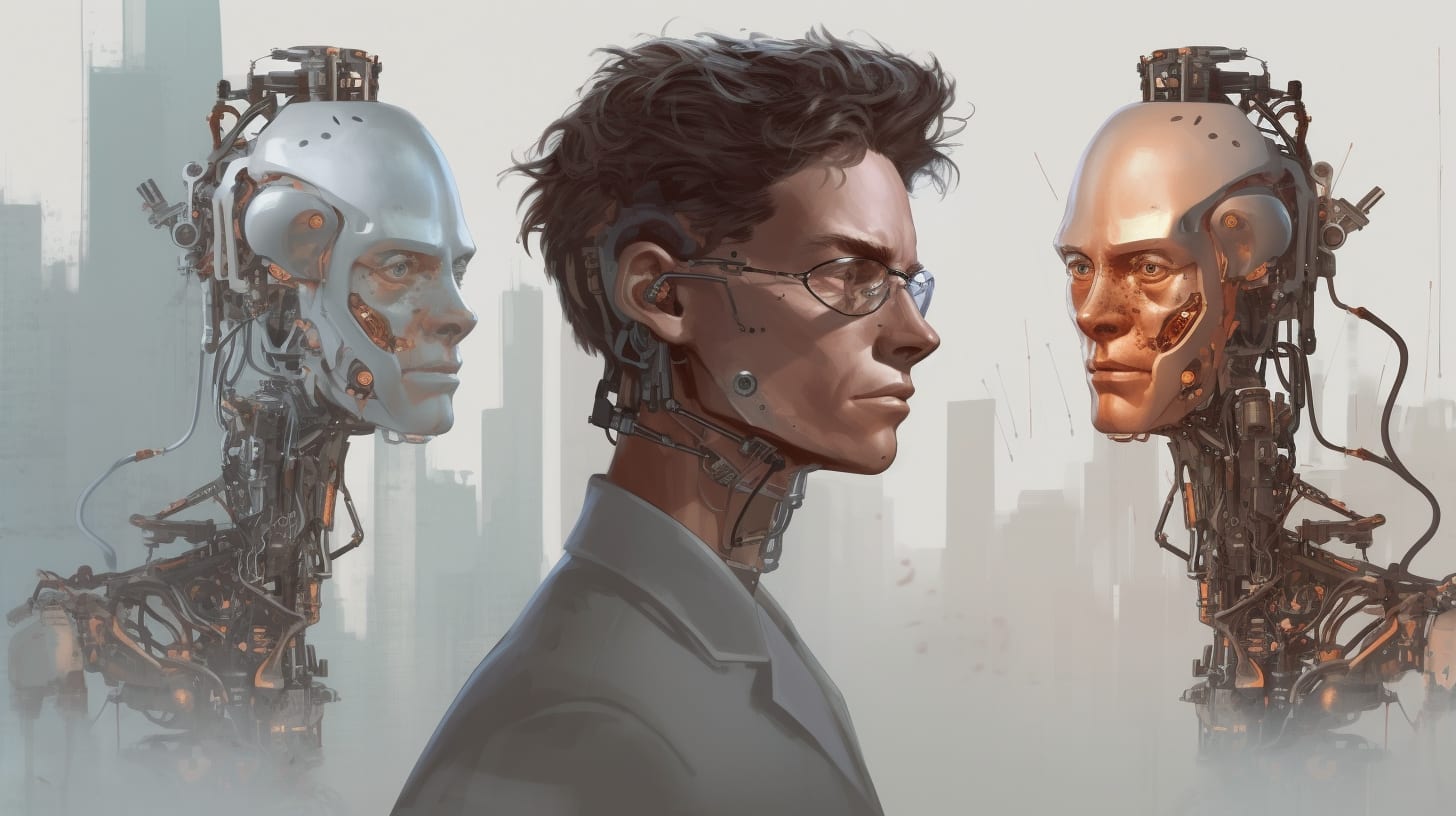Imagine a world where machines can autonomously perceive their environment, make decisions, and take actions to achieve specific goals. This is not a distant sci-fi dream; it's the reality of today's artificial intelligence (AI) landscape, powered by intelligent agent technology. As AI continues to evolve rapidly, intelligent agents are revolutionizing industries, streamlining processes, and improving our daily lives. Let's dive into the world of intelligent agents and discover their inner workings, key features, and real-world applications.
Short Summary
- Intelligent agents are AI systems that perceive their environment, process information and take actions to reach goals autonomously.
- They possess key features such as autonomy, adaptability, pro-activeness and goal-oriented behavior which make them distinct from other AI systems.
- Real world applications of intelligent agents are transforming industries and enhancing our daily lives while advancements in technology promise a more efficient future for intelligent agents in Artificial Intelligence.
Understanding Intelligent Agents
An intelligent agent is a computer program or system created to perceive its environment, make decisions, and take actions to reach a specified goal or set of goals. They form the core of many AI systems, transforming raw data from the environment into useful information and actions. The architecture of intelligent agents is composed of sensors, actuators, and effectors, which enable them to sense their surroundings, process information, and execute actions accordingly.
There are various types of intelligent agents, such as, model based agents, utility-based agents, learning agents, bots, and simple reflex agents. These agents can be employed in numerous applications, including enhancing information search and retrieval, problem-solving, and optimizing mathematical problem-solving.
In essence, intelligent agents form the backbone of many AI systems, enabling them to make informed decisions and act autonomously.
Key Features of Intelligent Agents
Intelligent agents possess four defining characteristics that set them apart from other AI systems: autonomy, adaptability, pro-activeness, and goal-oriented behavior. These features enable intelligent agents to operate independently, learn from experience, take initiative, and pursue goals effectively.
Let's take a closer look at each of these key features.
Autonomy
Autonomy is the capability of an agent to act independently and make choices without external input. This feature is crucial for intelligent agents, as it allows them to operate without direct human intervention or other software methods, controlling their activities and internal environment. Achieving autonomy in intelligent agents involves evaluating their performance based on their experiences while learning and adapting.
Examples of autonomous agents include self-driving cars, robotic agents, and AI-driven software systems that can make decisions and take actions without human input. Autonomy is not only essential for the functioning of intelligent agents, but also a valuable attribute in promoting well-being for individuals, groups, societies, and organizations.
Adaptability
Adaptability refers to an agent's capacity to learn from experience and adjust its behavior accordingly. This soft skill enables intelligent agents to quickly and efficiently respond to novel scenarios and tasks, thus ensuring their continued success. Developing adaptability may be achieved by being receptive to new ideas and experiences, embracing risk-taking, and learning from mistakes.
For example, an intelligent agent in an autonomous vehicle could use infrared range finders to detect obstacles and adjust its driving behavior accordingly. Similarly, AI assistants like Siri and Alexa can adapt their responses based on new and informative experiences, improving their performance over time. Adaptability is a crucial feature of intelligent agents, as it the additional learning element enables them to evolve and stay relevant in a rapidly changing world.
Pro-Activeness
Pro-activeness is characterized by the ability to take initiative and plan ahead to reach objectives. In the context of intelligent agents, pro-activeness involves the human agent in taking the initiative to create goals and attempt to meet them. This forward-thinking approach allows intelligent agents to anticipate potential problems and take control in situations.
For instance, an AI-powered customer support system might proactively reach out to customers who have experienced issues, offering assistance before they even request help. Similarly, an AI-driven inventory management system could anticipate stock shortages and automatically place orders to replenish items before they run out.
Pro-activeness in intelligent agents enables them to stay one step ahead, maximizing their effectiveness and efficiency.
Goal-Oriented Behavior
Goal-oriented behavior involves the capacity to pursue goals and objectives. In AI, goal-oriented behavior enables agents to make decisions based on their goals and objectives, allowing them to act autonomously and adjust to varying environments. This feature brings numerous advantages, such as enhanced autonomy, adaptability, and proactivity, enabling agents to make decisions quickly and precisely, and to respond to fluctuating conditions in real-time.
However, there are challenges associated with goal-oriented behavior in AI, including the difficulty of setting goals and objectives for rational agents, as well as the complexity of designing agents that can accurately interpret and respond to changing conditions.
Despite these challenges, goal-oriented behavior remains a key feature of intelligent agents, ensuring that they can effectively pursue their objectives and adapt to dynamic environments.
Classifying Intelligent Agents
Intelligent agents can be classified into five categories based on their capabilities and perceived intelligence: reactive, deliberative, hybrid, those with learning agent capabilities, and mobile agents. Reactive agents take decisions based on the current perception and do not utilize any memory, while deliberative agents take decisions based on the current perception and utilize memory to store past experiences. Hybrid agents combine reactive and deliberative agents, learning agents can learn from their environment and adapt their behavior accordingly, and mobile agents are able to move from one environment to another.
Understanding these categories of intelligent agents provides a clearer picture of their potential applications and limitations. For example, simple reflex agents operate well in fully observable environments where they can react to stimuli without the need for memory. In contrast, model-based reflex agents can handle partially observable environments by incorporating past experiences into their decision-making process.
By classifying intelligent agents, we can better understand their capabilities and develop more effective AI systems.
What Is an AI Agent?
An AI agent is a computer program or system designed to autonomously perceive its environment, make decisions, and take actions in order to achieve specific objectives. AI agents are autonomous entities that are able to interact with their environment and take actions to attain their objectives. The architecture of AI agents consists of the architecture, agent function, and agent program, which work together to enable the agent to sense its surroundings, process information, and execute actions.
Let's explore the different types of AI agents and their unique characteristics.
Types of AI Agents
There are several types of AI agents, each with its own unique characteristics and capabilities. These include simple reflex agents, model-based reflex agents, goal-based agents, utility-based agents, and learning agents.
Simple reflex agents respond to the current state of the environment by taking an action, without considering any past information or future objectives. Model-based reflex agents, on the other hand, take action based on the current state of the agents choose the environment while considering past information and future goals.
Goal-based agents take action based on the current state of the environment and consider past information and future goals in order to reach a specified objective. Utility-based agents optimize a particular utility function or internal system, taking action based on the current state of the environment while evaluating past information and future goals.
Finally, learning agents acquire knowledge from their environment to optimize their performance, considering past performance elements, information and future goals in their decision-making process. By understanding the various types of AI agents, we can better tailor AI systems to specific tasks and challenges.
Components of Intelligent Agent Architecture
The architecture of intelligent agents is made up of three key parts. These are the architecture, agent function and agent program. All three pieces are integral to any intelligent agent's overall design. These components work together to enable the agent to perceive its environment, process information, and execute actions.
The architecture provides the environment in which the agent operates, the agent function describes the mapping of rational agent from perceptions to actions, and the agent program is a set of instructions that the agent follows. Let's delve deeper into each of these components.
Architecture
The architecture of an intelligent agent comprises the hardware and software components necessary to enable its functioning. This includes sensors and actuators, as well as the agent program. Sensors gather information from the environment, such as cameras, GPS, and radar, while actuators initiate actions, like brakes in an autonomous vehicle.
The architecture of intelligent agents varies depending on the type of agent and its specific application. For example, a robotic agent may employ a physical architecture that includes sensors, actuators, and effectors, while a software agent may rely on a virtual architecture with simulated sensors and actuators.
Regardless of the specific architecture, the underlying goal is to provide a framework for the agent to perceive its environment and take actions accordingly.
Agent Function
The agent function is a crucial component of intelligent agents, as it determines how the agent will interact with its environment. It is responsible for mapping the environment's perceptions to the agent's actions and can be based on logic, probability, or other approaches. Agent functions may be simple, like a condition-action rule in a reflex agent, or more complex, like a utility function in a utility-based agent.
The agent function is a learning element designed to optimize the performance of the intelligent agent, ensuring that it effectively pursues its objectives and adapts to dynamic environments. By studying the behavior of successful agents, we can replicate their actions and use them to enhance the performance of other agents.
Agent Program
The agent program is a crucial component of intelligent agents, as it is responsible for mapping the environment and agent's history and perceptions to the agent's actions. It consists of a set of rules that outline how the agent should react to various scenarios, such as event-condition-action rules for reactive agents or game theory-based strategies for strategic agents. These rules can be based on logic, probability, or other approaches.
Examples of agent programs include robotic agents, autonomous vehicles, and virtual assistants like Siri and Alexa. The agent program not only determines how the intelligent agent perceives its environment and takes actions, but also forms the basis for learning and adaptation.
By continuously refining the agent program, intelligent agents can improve their performance and effectively navigate their ever-changing environment.
Real-World Applications of Intelligent Agents
Intelligent agents are used in various real-world applications, transforming industries and improving our daily lives. One prominent example is self-driving cars, which employ intelligent agents to perceive their environment, make decisions, and take actions such as accelerating, braking, and steering. These autonomous vehicles utilize a combination of sensors, actuators, and agent programs to achieve their goals, revolutionizing the transportation industry.
Another application of intelligent agents is AI assistants, such as Siri and Alexa. These virtual assistants use natural language processing and machine learning algorithms to understand user queries and provide relevant information or perform tasks. Autonomous robots are also an important application of intelligent agents, with uses ranging from manufacturing to healthcare.
These real-world applications highlight the power and potential of intelligent agents in AI, bringing us closer to a future where machines work alongside humans to solve complex problems.
Enhancing Intelligent Agent Performance
Improving the performance of intelligent agents is an ongoing challenge, as AI systems continue to evolve and become more sophisticated. To enhance agent performance, techniques such as machine learning and deep learning can be employed. These AI capabilities enable intelligent agents to learn from their environment, adjust their behavior, and optimize their performance over time.
By continuously refining the performance element of agent program and incorporating new learning techniques, intelligent agents can become more effective at achieving their goals. This not only improves the performance of individual agents, but also contributes to the overall advancement of AI.
As intelligent agents continue to learn and adapt, they will play an increasingly important role in solving global challenges and improving the quality of life for people around the world.
The Future of Intelligent Agents in AI
The future of intelligent agents in AI looks promising, with more advanced AI-driven devices being developed to solve global challenges and improve our daily lives. As AI technology continues to advance, we can expect to see even more sophisticated intelligent agents that can autonomously learn from their environment, adapt their behavior, and achieve complex goals.
From driverless cars and AI assistants to autonomous robots and beyond, the potential applications of intelligent agents are vast and varied. As we continue to develop and refine AI technology, intelligent agents will play an increasingly important role in shaping the future of our world. Harnessing the power of intelligent agents will enable us to tackle some of the most pressing challenges facing humanity today and pave the way for a more innovative, efficient, and sustainable future.
Summary
Intelligent agents are at the forefront of AI innovation, offering powerful solutions to complex problems and transforming industries. With their unique characteristics of autonomy, adaptability, pro-activeness, and goal-oriented behavior, intelligent agents enable AI systems to operate independently, learn from experience, take initiative, and pursue goals effectively. By understanding the various types and classifications of intelligent agents, as well as their underlying architecture, we can develop more effective AI systems tailored to specific tasks and challenges.
The future of intelligent agents in AI is bright, as we continue to develop and refine AI technology to create more advanced and capable agents. From driverless cars to AI assistants and autonomous robots, the potential applications of intelligent agents are vast and varied. As we harness the power of intelligent agents, we can tackle some of the most pressing challenges facing humanity today and pave the way for a more innovative, efficient, and sustainable future.




